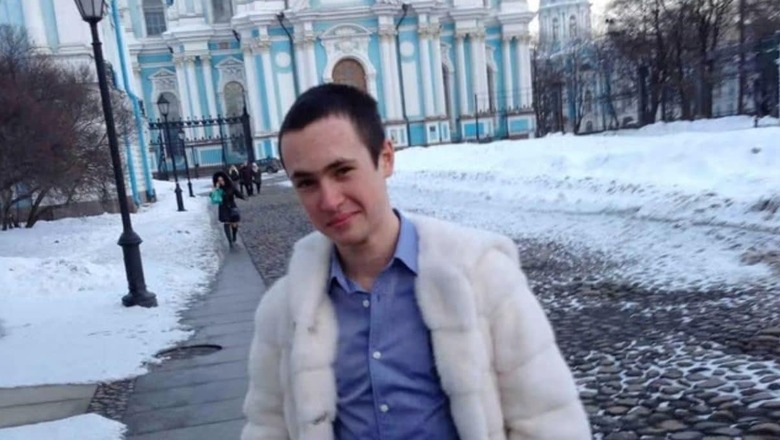
views
More than a month after the chief of Russia’s Wagner Group died in a plane crash, Yevgeny Prigozhin’s 25-year-old son is set to take over from his father and become the next boss of the mercenary group.
According to a widely circulated photograph of Prigozhin’s will, Pavel Prigozhin will be inheriting the vast majority of his father’s riches, including the mercenary group, properties and about $121 million.
The junior Prigozhin will also inherit the private army, a house in St Petersburg, nine joint stock companies and shares in his father’s Concord catering firm.
Pavel is reportedly negotiating with the Kremlin on returning its fighters to the war in Ukraine, groups linked to the group have said.
How Did Yevgeny Prigozhin Die?
Yevgeny Prigozhin was killed in a plane crash earlier in August, two months after staging a short-lived mutiny against Russian President Vladimir Putin.
Prigozhin died along with nine others in a plane crash in the Tver region that took place two months after the Wagner chief ordered his troops to topple Russia’s military leadership, in what was the most significant challenge to Putin’s authority since he came to power in 2000.
Many military analysts said the downing of Prigozhin’s plane appeared deliberate, with some suggesting it might have been blown out of the sky by a missile and others pointing to a possible bomb. The Kremlin, however, has dismissed suggestions that it orchestrated the crash in revenge for Wagner’s march on Moscow in June.
Prigozhin’s Net Worth
The late Wagner chief is estimated to be a billionaire with a huge yacht and a private plane among other luxuries.
Prigozhin’s catering firm routinely won Russian state contracts and is reportedly owed about $824 million by Russian defence officials that Pavel would seek to recover. Earlier in June, Putin announced that in 2022, Prigozhin and Wagner Group had raked in $1.94 billion worth of contracts from the Russian state.
Moreover, firms allegedly linked to Prigozhin generated $250 million from natural resources in African and Middle Eastern countries, few years before the Russian invasion of Ukraine.
According to reports, Prigozhin’s net worth was said to be only $146 million but Russian opposition activist Alexei Navalny’s Anti-Corruption Foundation estimated it to be around $20 billion.
Prigozhin’s wealth will go to his son Pavel, who will continue the legacy of his father after he takes command of the mercenary group.
All About Pavel Prigozhin
Pavel Prigozhin, alongside his mother Lyubov and elder sister Polina, has already played various roles in Prigozhin’s business enterprises, that benefitted from his relations within Russia’s elite, a report in The Independent said.
Prigozhin’s son has also fought with the Wagner Forces in Syria and was awarded the group’s “black cross” in recognition for his military service.
He already controls several companies and luxury real estate complexes in St Petersburg, according to the US Treasury. He has also been sanctioned by many countries, including Canada, the US and the UK.
Pavel to Take Over
The Wagner group has had no clear leader since the death of Yevgeny Prigozhin. Pro-Wagner groups have circulated the will online stating that Pavel should inherit the group’s property and militia. Pavel has said in September that he has accepted the will and its conditions.
The emergence of Pavel Prigozhin as the new chief comes after some Wagner fighters reacted negatively to Vladimir Putin embracing Wagner’s former senior commander Andrei Troshev, known by his call sign “Sedoi” or grey-hair.
The choice for Pavel Prigozhin comes as “some Wagner personnel are interested in rallying around a Prigozhin-linked alternative to the Kremlin- and MoD-aligned Troshev, even if that alternative is not an independent entity,” the Institute for the Study of War (ISW) said.
A report in The Telegraph quoted sources saying that Moscow was considering allowing Wagner Group elements to join the Russian National Guard as a separate unit.
A Ukrainian military spokesman also said last week that several hundred Wagner fighters had returned to eastern Ukraine after withdrawing from the country following the capture of Bakhmut in May.
(With inputs from agencies)


















Comments
0 comment